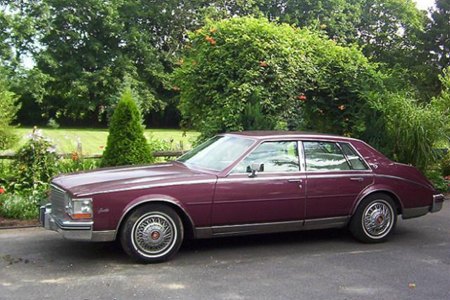American Car Buyers: Hybrids, Yes; Diesels, No
If you were 20 when GM equipped the Cadillac Seville with a 105hp 5.7-liter LF9 diesel engine– a powerplant whose feeble power, clattering noise, belching smoke, mechanical unreliability and brand defilement made oil burners about as fashionable as AM stereo– you'd be 43 now. So… I guess there's still a mountain for the marketing men to climb. Kelley Blue Book confirms this suspicion. In a January survey of an unspecified number of in-market car buyers, nearly half said diesels are "dirty and noisy." What's worse, "shoppers increasingly believe that diesel-powered vehicles get poorer fuel mileage than conventional gasoline engines, and fewer consumers are seeing diesels as fuel-efficient." That's right, diesel's appeal is actually declining amongst car buyers. Meanwhile, hybrids are ascendant, with 61 percent of shoppers claiming an interest in buying a car with a gas – electric engine. "When asked about the premium they are willing to pay for a gas/electric hybrid over a traditional gasoline-powered version of the same vehicle, this month shoppers are willing to pay an average premium of $3,135, up from an average premium of $2,645 a month ago in December 2007." Can any automaker break the American diesel curse? If they do, it's going to be a long, tough job.
More by Robert Farago


































Comments
Join the conversation
Diesel = heavy (for a reliable plant). Why? Higher operating pressures required for combustion. So for a reliable, lasting engine you have up with a lower power-to-weight ratio than any gasoline powered equivalent (compare them). End result? 1) A heavier, more expensive, sluggish, and inefficient machine (zero to 60 in 30 seconds, lower mpg than gasoline equivalent, but lots of torque, i.e. the big truck model) OR 2) A equivalent-weight vehicle with a loud, thin-walled, lightweight piece of crap mill with no power that slowly blows itself apart after 50,000 miles (i.e. the earlier NA diesel-powered automobile model).
My experience with diesel is a 2005 Cummins in a 7,500 lb truck. My neighbor thinks it is quieter than his V10 (talk about MPG). My wife thinks the smell is a bit like propane. My previous gas truck got no better than 16 MPG, downhill. My current truck averages between 20 and 24 depending on type of driving. It also, at 600 ft lbs of twist, can pull our fifth wheel like it is not even there. Safeways in our area carring diesel as do many other stations in NV. Diesel costs 16% more than 87 gas and I get 25% better MPG. I am waiting for the diesel Honda Pilot scheduled to be on lots later this year. Hybrid cars have their own issues some of which have yet to surface, like what do you do when the battery life is over?
Toyota has mass produced hybrids now for 10 years. There are no hidden issues. There is a recycling program for the batteries, but there have been no reports about batteries failing or wearing out etc. Prius taxi cars have driven 300.000+ miles with the original hybrid components. Diesel engine is no 7th wonder of the world. Modern gasoline turbo engines have the same characteristics than diesel engines - broad low end torque, which makes highway driving/passing and pulling heavy loads as easy as with diesel engines. you can use high gears and low rpm at higher highway speeds - no need to change gears down when passing other cars on highway etc. Even the most modern diesels are noisier than gasoline engines. Especially when starting and even more during cold weather. And your hands will stink afterwards, even after washing. When you go to eat after tanking your diesel car its awful, the smell from your fingers... In europe diesels are not so popular because everybody here is way smarter than in the U.S., but mainly because of the market hype, hype like in the U.S. with hybrids.
Oh, come on, I understand that there's a commute driving in Cali, but you mean to tell me there are no soccer moms dashing hither and yon all day long while dad's at the office? Trip rationalization would help cut their gas consumption.